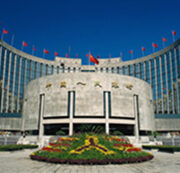
About Stephen Groff
Stephen P. Groff is Vice-President (Operations 2) of ADB. He assumed office in October 2011. Mr. Groff is responsible for the full range of ADB’s operations in East Asia, Southeast Asia, and the Pacific. His mandate includes establishing strategic and operational priorities in his areas of responsibility, producing investment and technical assistance operations amounting to $4-5 billion annually, managing an existing portfolio of about $23 billion, and leading about 700 staff.3 ways to serve Asia and the Pacific’s ‘unbanked’

Every time I stop and withdraw cash from an ATM or use my credit card to buy something online, I wonder how many people in Asia have access to such services. In fact, these simple transactions are beyond the reach of 45% of adults in East Asia and the Pacific alone. They are excluded from the formal financial system and will remain so until they open a bank account.
Asia and Pacific region post-2015 priorities, MDG8, and Global Partnerships

Any contemporary story on development in the Asia and Pacific region begins with reflection on the massive gains achieved in the fight against poverty. The incidence of people living on less than $1.25 a day fell from 54.5% in 1990 to 20.7% in 2010, with the number of extreme poor declining from 1.48 billion to 733 million. This precipitous decline in poverty incidence has been accompanied by tremendous gains in access to health and education.
New Challenges for Asia’s Central Banks

The current macroeconomic environment is far more unpredictable and difficult than just a few years ago. Asia’s central banks must evolve in order to adapt to this new landscape. Usually, a central bank’s role is to keep inflation low and stable. But with recent upheavals and financial market turmoil, they have also been charged with maintaining financial stability. To do this, central banks must increasingly work together and coordinate with other authorities. Such coordination—central to the region’s successful navigation of the 2008–2009 global financial crisis— does have implications for central bank objectivity. Central banks do not want to lose their often hard-won independence—an important factor in their operational effectiveness.


Search
Subscribe / Connect to Asia Pathways
Subjects
- Agriculture and natural resources
- Blog
- Capacity development
- Climate change
- Economics
- Education
- Energy
- Environment
- Finance sector development
- Gender
- Governance and public sector management
- Health
- Industry and trade
- Information and Communications Technology
- Infrastructure
- Miscellaneous
- Population
- Poverty
- Private sector development
- Regional cooperation and integration
- Sanitation
- Social development and protection
- Transport
- Uncategorized
- Urban development
- Video Blog
- Water
Recent Posts
- Unraveling the Health Risks of Climate Change
- Linking Farmers to Markets Through Agricultural Cooperatives and E-Commerce in Asia
- How Can Governments Support Electricity Distribution to Achieve Net Zero in Asia?
- Promoting Corporate Climate Action Through Greenhouse Gas Accounting
- Evaluating G7 Commitments on Climate Change, Health, Well-Being, and Agriculture




Recent Comments